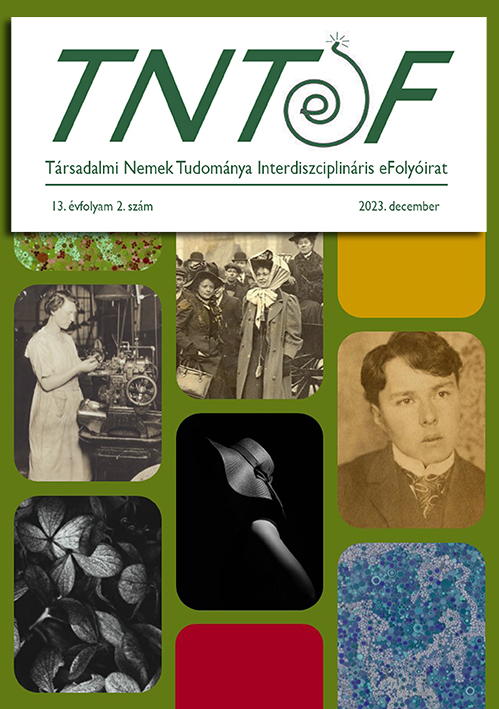Jegyzetek egy transzkulturális (egyetemi) életről
Main Article Content
Absztrakt
Az 1990-es években Amerikában az életírás egy új műfaja jelent meg, a kutató memoárja (academic memoir), amelyet gyakran bevándorlók írtak, vagy olyanok, akik az osztályhovatartozásuk vagy a szexuális orientációjuk miatt csak igen nehezen tudtak beilleszkedni. Mohó érdeklődéssel olvastam ezeket a műveket, de valahogy mindig arra a következtetésre jutottam, hogy a saját viszontagságos gyerekkorom menekültként, és a beilleszkedésig megtett utam ezeknél jóval komplexebb volt. Az utóbbi két évtizedben tudományos cikkeket írtam, feminista szemszögből, női holokauszttúlélők életéről is. 2016-ben ebben a szaklapban, a TNTeF-ben jelentettem meg az „Életírás, társadalmi nemek és trauma” című tanulmányomat. Itt tárgyalom az „életírás” elnevezésű interdiszciplináris műfajt, amely, mivel kitágítja a műfaji határokat, túl tud lépni a hagyományos élettörténet kanonikus megkötésein. Mégis, a legutóbbi időkig elkerültem, hogy én is írjak a saját életemről. Idén aztán, miután megünnepeltem azt a kerek születésnapot, ami általában az utolsó kerek születésnapja azon szerencséseknek, akik egyáltalán megélik ezt a kort, elkezdtem írni egy szöveget, ami már egy autoetnográfia felé halad. A családtörténetem Magyarország tragikus történelmének szinte minden fordulatát jól példázza, de a jelen részletben életemnek főleg az Amerikai Egyesült Államokban egyetemi kutatóként megélt aspektusait tárgyalom. A beszámolóm egyszerre személyes és történeti, de elsősorban arra törekszik, hogy felidézze, milyen volt Amerikában a Berkeleyn a „radikális” hatvanas években doktorálni, majd a hetvenes évektől a feminista tudósok első generációjához tartozni, hogy milyen intellektuális és kulturális erők alakították ezt a generációt.

